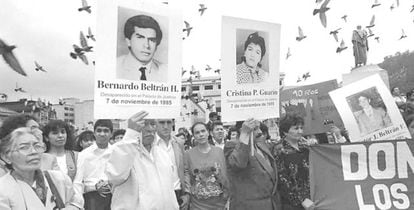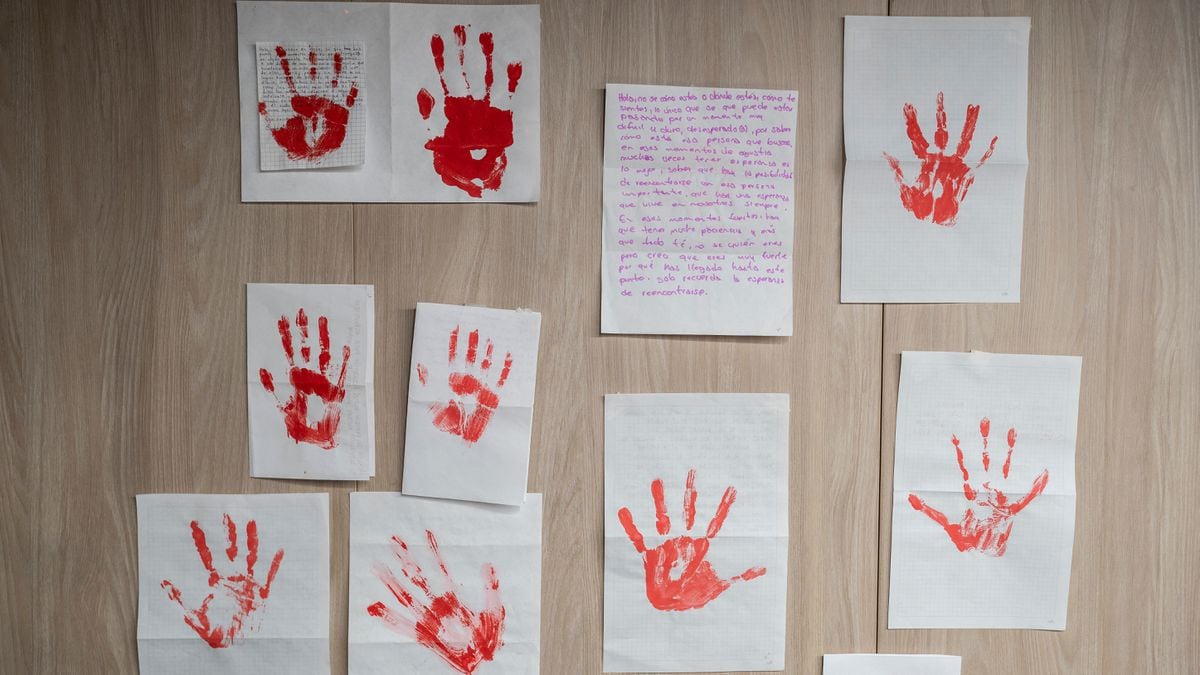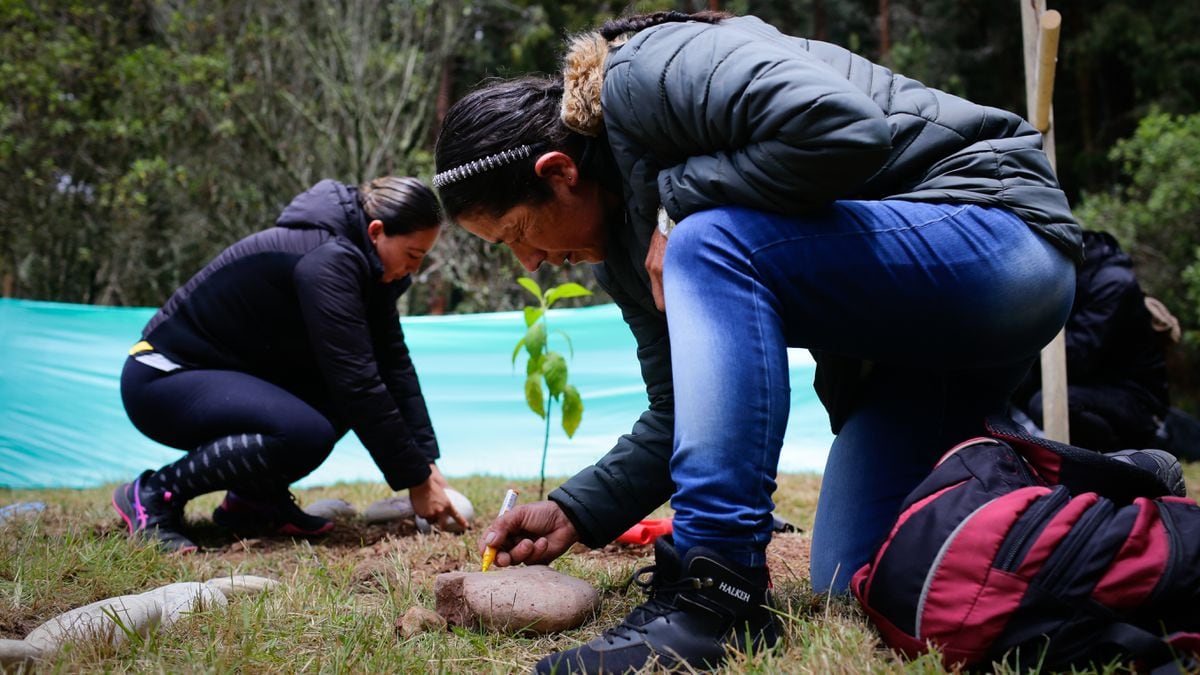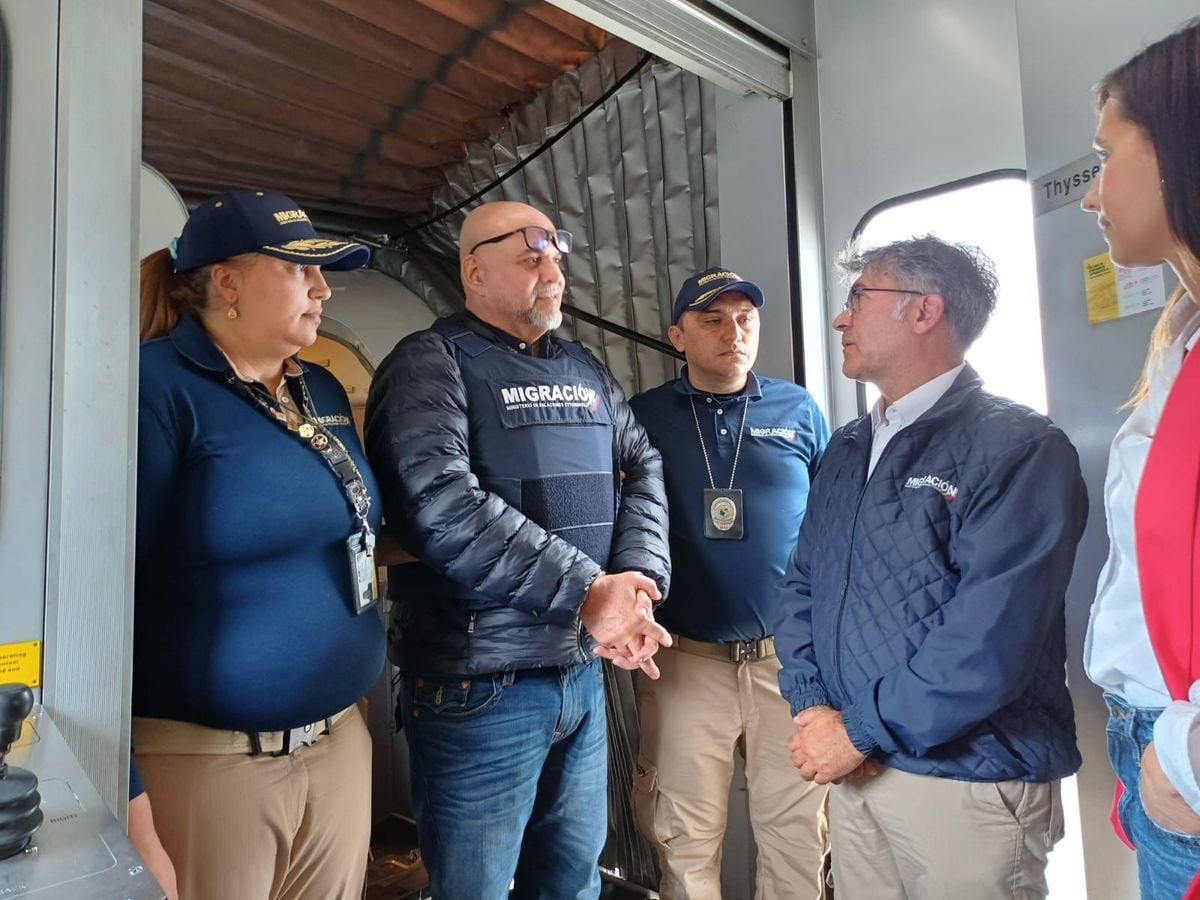A demonstration to demand justice for the disappeared in the capture of the Palace of Justice, in 1995, in Colombia.
It is of no use that one day a year people talk about the victims in Colombia, in commemoration of their date: every April 9, if when they seek help no one attends them.
René Guarín knows very well what it is to deal with a state that re-victimizes and makes the suffering eternal.
His sister, Cristina, disappeared in 1985 in the seizure of the Palace of Justice, and after 30 years they handed her over to her in a box, they told her that the bones inside belonged to her.
”There is no justice.
Who killed her?
How did he kill her? ”Guarín has asked himself for 36 years.
This Friday, the Colombian Government spoke of reparation and assistance to the victims, who number more than nine million, 18% of the population.
He said that of the total registered, at least seven meet the requirements to access the measures provided for their repair.
As the officials spoke, the victims wrote.
In one of the events broadcast on YouTube, several people who have been displaced by violence, and still do not receive aid, left their pleas in writing.
"Good morning, my name is Gloria.
On November 14, 2007, I was displaced by the FARC.
I have requested humanitarian aid in recent years and the answer they give me is that I do not need it.
I am in extreme poverty and they continue to deny me aid ”, wrote Gloria Inés Lasso.
There are the victims who have been knocking on doors for years, like Gloria, and those who barely appear in that bureaucratic labyrinth that delays reparation.
In Colombia, despite the peace agreement between the guerrillas and the FARC, in 2016, the conflict persists.
This year, until April 8, there had been 25 massacres, with about 95 victims, according to the Institute for Development and Peace Studies (Indepaz).
According to the same entity, from January to March, 15,000 people had to leave their homes because of the violence.
Last year ended - Indepaz points out - with 106 massive displacements, this year in just three months there are 65.
The Colombian government points to the FARC dissidents, the ELN guerrillas or the gangs that dispute the hectares of coca as those responsible for the violence, but the experts and the ex-guerrillas themselves question the little state presence in the regions and the obstacles in the fulfillment of the peace agreement.
“What the victims are asking for is true, that the uncertainty disappears.
They gave me a box full of bones, but I don't know how she died or who killed her, and I feel like I'm hardly going to know, ”Guarín says by phone from Bogotá.
According to him, there has been no will in any government in recent decades to offer justice, not even in the case of his sister, one of the most emblematic in the recent history of the country.
“Many presidents passed and they all always announced new lines of investigation, but in the end nothing happened.
Álvaro Uribe was the first to oppose a decision that favored the victims with the sentence against a colonel, then Juan Manuel Santos, Nobel Peace Prize winner, considered a measure against a general, also implicated, as 'unfair', ”Guarín complains. she remembers that her parents died waiting to know what had happened to their 26-year-old daughter, who on November 6, 1985 went to work in the cafeteria of the Palace of Justice and did not return.
She was one of the people who disappeared in the seizure of the state building by the M-19 guerrillas and later violent resumption, at the hands of the Colombian Army.
“I was a young systems engineering student who was only interested in the math Olympics, but suddenly, in one day, I became a man who dedicated himself to knocking on doors, going around, checking what it is like to be a victim in this country ”, he says.
Guarín thinks of the victims in the regions that are further away from the capital, and of the cases that are not as high-profile as his sister's, and he knows that for others the path to reparation is more difficult.
"The bureaucracy and the lack of state interest are not covered with speeches like the ones we see today, the day of the victims, when the Government comes out to speak beautifully," he concludes.
Subscribe here
to the
EL PAÍS América
newsletter
and receive all the information keys on the region's current affairs




/cloudfront-eu-central-1.images.arcpublishing.com/prisa/62WTZ2YGTKOGTJ6OXJW67JCCME.jpg)




